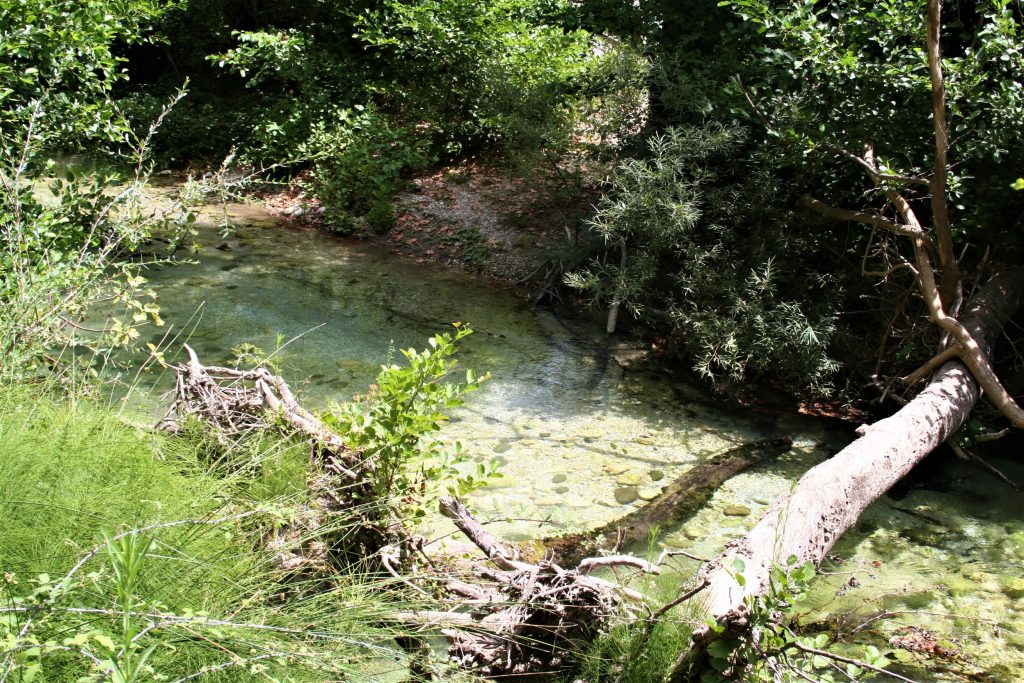There are debates about monetary value of nature but… does nature have other values than the mere monetary one? What are they and why it is important to focus also on the non-monetary values of nature?

Questions related to the value of nature (or environmental values) are central subject in the philosophical field of environmental ethics. Here I present a variety of different ways that nature has been valued from different fields of research. From these examples, I aim to show that it is critical that policy makers begin taking non-monetary environmental values into account. We can identify different types of environmental value: the monetary value praised mainly by economists, and a set of “non-monetary values” referring to types of environmental values which highlight aspects other than the economic one such as the moral, aesthetic, ecological, and Indigenous values of nature. Those values are identified mainly by philosophers, natural scientists and Indigenous scholars.
Environmental economists characterize the environmental monetary value as “units of goods and services derived from nature that can be purchased in markets”[i]. They measure those units, also called ‘commodities’, via tools and methods.
The non-monetary values of nature: The moral value
Environmental ethicists strongly criticized the economic methods of measuring the value of nature, emphasising their strong anthropocentric aspect[ii]. Thus, they started to develop a set of other types of environmental values which highlight aspects other than the monetary one, focusing mainly on the moral value. Traditionally, fundamental moral questions in environmental ethics have been linked on normative issues on how and why we should value nature in itself[iii]. A big attention of environmental ethics research has been devoted to what else has moral status or moral value in nature, other than humans. Candidates for having moral status have been animals[iv], plants, everything that is alive[v]and even other natural elements such as mountains, stones and similar ones.[vi]
The aesthetics and ecological value of nature
Many philosophers in the field of environmental aesthetics debate around the aesthetic value or nature appreciation focusing on human experience that plays a pivotal role for aesthetic judgement[vii]. In fact, the aesthetic value of nature comprises not only the visual dimension such as colours, shapes and similar ones, but also sounds such as birdsongs, waterfalls, wind, sea waves. Likewise smells[viii] such as parfum of flowers and grass, as wells as the touch such as the texture of musk, wet grass, mushrooms and so forth, are part of the aesthetics environmental value. As Rolston III and Casi suggested, to have a full aesthetic experience of a natural environment, which include all the senses, one should immerse oneself in it, not only observe it from afar[ix].

In environmental ethics arguments that emphasize natural values often lie in the ecological –also called scientifically informed- value of nature based on scientific evidence. Ecological values, in fact, are typically defined according to scientific attributes and data provided by environmental scientists including a range of physical and biological characteristics. The knowledge of environmental sciences per se, has, or should have, a descriptive character and explain facts[x].
The Indigenous view and the importance of decolonizing environmental value discourses
Russell Means identifies ‘respect for the earth’ as one meaningful value of Indigenous ethics within Native American people[xi]. However, many other Indigenous populations share the same value such as Sami people living in the North of Europe and Northwest Russia. Other examples of Indigenous values are dignity and respect for all things that were created: the land including relations with the land and with all the elements that are part of it[xii]. The vital significance of the land derives from Indigenous worldview where human beings have a deep and spiritual connection with the natural environment where they live[xiii]. Traditional livelihood practices – such as reindeer herding and salmon fishing in the Sami Indigenous context – are strictly bounded to their territories and depend on healthy and well-functioning ecosystems as well as on the access to natural resources. Via all these relations the land becomes pivotal part of Indigenous peoples’ identities[xiv].
I address the need of shedding light on non-monetary values of nature, in respect of its monetary aspect, which has been given more importance due to their practical applicability, in environmental policies. Nevertheless, despite the minor visibility given to the non-monetary environmental values, I argue that they should be taken in more consideration into decision-making processes since they offer a wider variety of information that foster more sustainable environmental solutions.
In my view, too much emphasis on monetary measures of valuing nature reinforces neocolonial dynamics undermining part of environmental discourses.
If we want that those non-monetary environmental values would play a role in guiding environmental decision-making and policies, then we must acknowledge the neocolonial forms of valuing nature where they have been relegated so far, since this recognition could have a significant impact on environmental policies.
A change in the focus toward a consideration of a broader range of environmental values can also open pathways to more inclusive governance that also reflect an acceptance of our responsibilities toward other groups such as people of colour, Indigenous people and other minority groups, as well as other nonhuman species of the present and future generations.
Corinna Casi is a Doctoral candidate in Environmental Ethics at the University of Helsinki and a HELSUS member. She is also a Doctoral researcher in the ValueBioMat interdisciplinary project (STN, Academy of Finland) on bioplastics, affiliated with the University of Lapland, Rovaniemi.
References:
[i] Norton, B. G., 2012. Valuing Ecosystems. Nature Education Knowledge 3(10): 2, https://www.nature.com/scitable/knowledge/library/valuing-ecosystems-71373110/.
[ii] Norton 2012.
[iii] O’Neill, John, 2001. “Meta-ethics”, in Jamieson, Dale A Companion for Environmental Philosophy, Oxford: Blackwell Publishers: 163-176.
[iv] Singer, Peter 1975. Animal Liberation, 2009, New York. Harper Perennial.
[v] Taylor, P. 1986. Respect for Nature, Princeton: Princeton University Press.
[vi] Callicott, J. B., 1989. In Defence of the Land Ethic: Essays in Environmental Philosophy. Albany, NY: State University of New York Press.
[vii]. Brady, Emily 2017. “Aesthetic Value, Nature, and Environment”, in The Oxford Handbook of Environmental Ethics, Edited by Stephen M. Gardiner and Allen Thompson DOI: 10.1093/oxfordhb/9780199941339.013.17
[viii] Jamieson, Dale, 2008. Ethics and the environment: An Introduction, Cambridge: Cambridge University Press.
[ix] Rolston III, Holmes, 2002. “From Beauty to Duty: Aesthetics of Nature and Environmental Ethics” in Environment and the Arts: Perspectives on Environmental Aesthetics, Arnold Berleant, ed. Aldershot, Hampshire, UK, and Burlington, VT: 127-141. Casi, Corinna, 2017. “Ecological Significance in Nature Appreciation” in Experiencing the Everyday Edited by Carsten Friberg and Raine Vasquez, Copenhagen: NSU Press, 2017.
[x] Rolston III, Holmes. 1975. “Is there an Ecological Ethic?” in Ethics 85: 93–109.
[xi] Means, Russell 1996. Defending Mother Earth: Native American Perspectives on Environmental Justice, Jace Weaver.
[xii] Whyte Kyle Powys, 2013. “Justice Forward: Tribes, Climate Adaptation and Responsibility” (January 14, 2013). Climatic Change 120 (3) 117-130., Available at SSRN: https://ssrn.com/abstract=2244276
[xiii] Deloria, Vine Jr. 1973. God Is Red, New York: Dell.
[xiv] Kuokkanen, Rauna Johanna, 2019. Restructuring relations: Indigenous self-determination, governance, and gender, Oxford: Oxford University Press USA – OSO.
